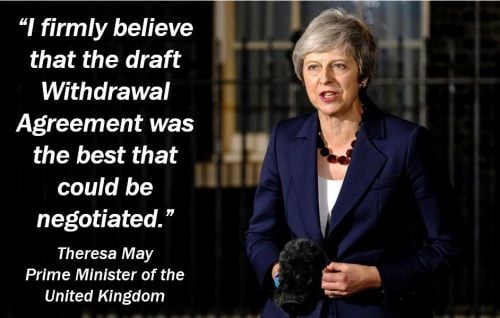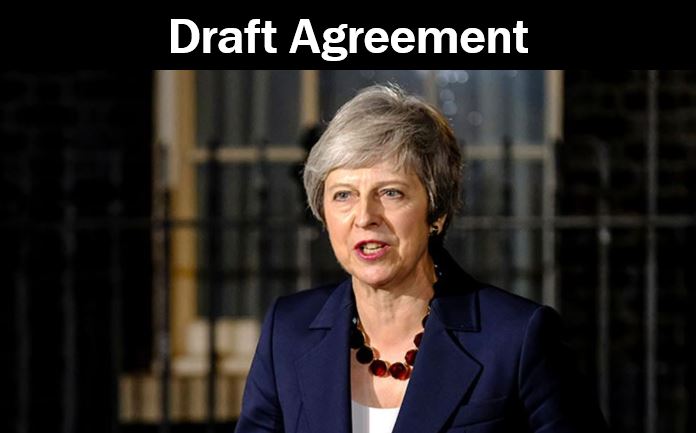British Prime Minister Theresa May’s Cabinet has backed the draft Brexit Withdrawal Agreement. Dr. Adam Marshal, Director General of the British Chambers of Commerce, gives his reaction.
Dr. Marshall said:
“Businesses will recognise the huge efforts made by the Prime Minister and across government to reach this milestone.”
“With people’s livelihoods and the future prospects for many companies in the balance, this is not the time for snap judgments. Businesses will be looking carefully and deliberately at the real-world implications of this agreement over the coming days, and expect their elected representatives to do the same.”

Withdrawal Agreement after 30 months of uncertainty
The British business community and the rest of the country have had to endure two-and-a-half years of uncertainty. Nobody really knows what comes next. Whether this draft Withdrawal Agreement is the end of the beginning or the beginning of the end is anybody’s guess.
When a company does not have clarity, it is reluctant to invest. In other words, when it cannot plan ahead because the future is uncertain, all types of investments dry up. This is bad for the economy and the country’s future prosperity.
This applies not only to British companies, but also foreign ones. Since the 2016 Brexit referendum vote, foreign direct investment into the UK has declined by 19%.
BREXIT stands for BRitain EXITing the EU (European Union). In June 2016, there was a referendum regarding EU membership in the UK. The Brexiteers won by a narrow margin – 51.9% vs. 48.1% – to leave the EU.
For the last thirty months, Theresa May and her Cabinet have been in negotiations with the EU regarding a Withdrawal Agreement.
Implications of the Withdrawal Agreement
Dr. Marshall added:
“After two and half years of uncertainty, this may be end of the beginning — but not yet the beginning of the end. Our firms need clarity and precision on the specific terms of trade they will face in future, many of which are still to be agreed. The avoidance of sudden or multiple changes to trading conditions is crucial to business investment and confidence.”
“Our priority will be to assess the implications of these proposals, working closely with Chamber business communities across the UK.”
After meeting with her Cabinet on November 14th, Prime Minister Theresa May said:
“I firmly believe that the draft Withdrawal Agreement was the best that could be negotiated, and it was for the Cabinet to decide whether to move on in the talks.”
“The choices before us were difficult, particularly in relation to the Northern Ireland backstop.”
“But the collective decision of Cabinet was that the Government should agree the draft Withdrawal Agreement and the Outline Political Declaration – this is a decisive step which enables us to move on and finalise the deal in the days ahead.”
“These decisions were not taken lightly – but I believe it is a decision that is firmly in the national interest.”
“When you strip away the detail, the choice before us is clear. This deal which delivers on the vote of the referendum, which brings back control of our money, laws and borders; ends free movement; protects jobs, security and our union; or leave with no deal; or no Brexit at all.”

